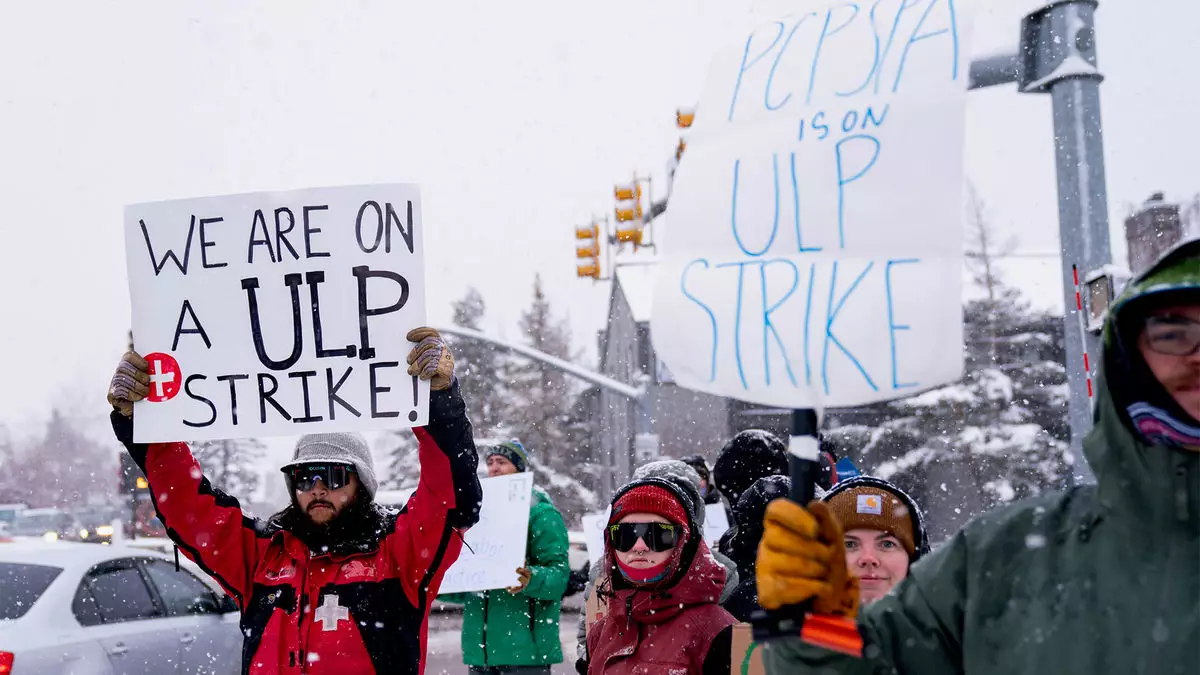As the strike by the Park City Professional Ski Patrol Association enters its seventh day, the atmosphere surrounding Park City Mountain Resort has become increasingly strained. Recent negotiations between the union and Vail Resorts were facilitated by federal mediators, emphasizing the urgent need for resolution as the situation evolves. This prolonged standoff not only represents a clash of interests between management and the ski patrol but also highlights the broader implications for the ski community, especially during a season marked by disappointing snowfall.
According to Deirdra Walsh, COO of Park City Mountain Resort, the strike’s timing has coincided with a suboptimal early season for snowfall, restricting the terrain available for skiing. Currently, only 24 of the mountain’s 41 lifts are operational, with a mere 75 of 346 runs open for skiers. To put this in perspective, Deer Valley, a nearby resort, has a significantly better opening, featuring 21 of 24 lifts and 73 of its 121 runs available. Such stark contrasts have spurred frustration among visitors, as evidenced by numerous complaints and social media posts highlighting long wait times at the lift lines, further exacerbated by understaffing due to the ongoing strike.
In a statement released on January 1, the ski patrollers’ union openly lamented the lack of progress in negotiations, indicating that the two sides remain miles apart in reaching an agreement. While ski patrol teams are typically a well-coordinated group of over 100 individuals, the current situation has dramatically reduced this number, raising safety concerns throughout the resort. A distressing letter addressed to Vail Resorts CEO Kirsten Lynch from ski patrollers at Crested Butte, Breckenridge, and Keystone underscored serious allegations, claiming that the company has pressured patrol leaders from other mountains to come to Park City to fill the gap, which undermines coordinated leadership essential for safety.
The heart of the matter revolves around the safety of both patrons and staff. The union’s letter emphasized that the standard operating procedures and safety measures at ski resorts rely heavily on trusted leadership roles within patrol teams. The ongoing situation has not only put ski patrol personnel at a disadvantage but has also raised legitimate concerns regarding whether visitors can enjoy a safe skiing experience at Park City Mountain Resort amid such unrest.
The continued strike and negotiations put Vail Resorts in a precarious position as the company grapples with visitor dissatisfaction and negative public relations. Stakeholders and patrons alike closely watch how this impasse will unfold, as the resolution could set crucial precedents for labor relations within the ski industry. The outcomes of these discussions not only affect the immediate operations at Park City Mountain Resort but will undoubtedly resonate within the broader skiing community as both parties strive to reclaim a sense of normalcy and assurance for the upcoming ski season.


Leave a Reply